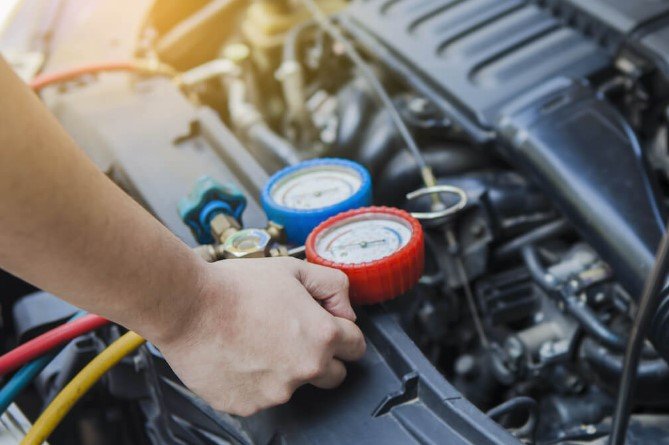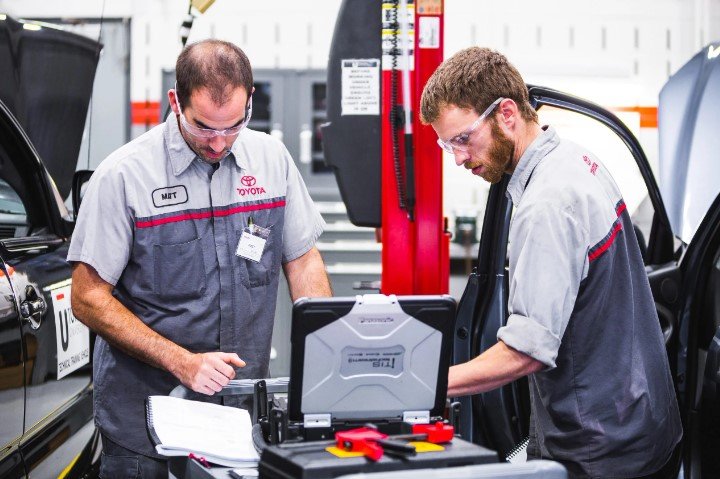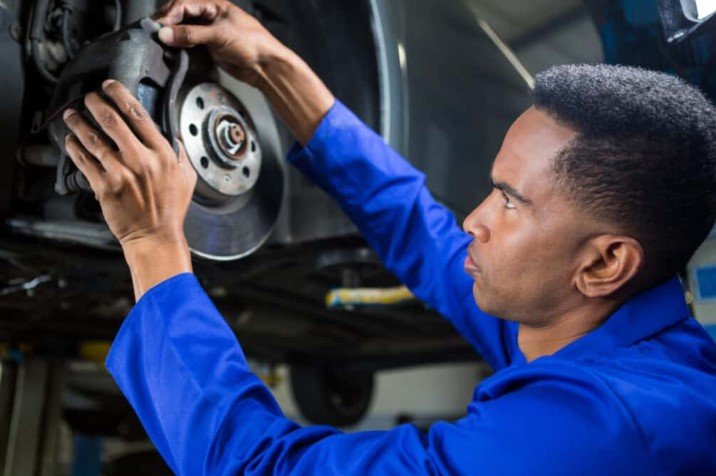
Car Air Conditioner Repair: Keeping Your Cool on the Road

In the scorching heat of summer or during long road trips, a functioning car air conditioner can make all the difference in your comfort and safety. However, like any other mechanical system, car air conditioners can encounter problems over time, leaving you sweating behind the wheel. In this guide, we’ll explore everything you need to know about car air conditioner repair, from common signs of trouble to DIY troubleshooting tips and finding the right professional help.
Common Signs of a Faulty Car Air Conditioner
Before delving into repair options, it’s essential to recognize the symptoms of a malfunctioning car air conditioner. Some common signs include:
- Weak airflow or no cool air blowing from the vents
- Unusual noises such as rattling or hissing when the AC is turned on
- Foul odors emanating from the vents
- Visible leaks or puddles of refrigerant under the car
- Inconsistent cooling, with some vents blowing cold air while others remain warm
Understanding How Car Air Conditioners Work
To diagnose and repair air conditioner issues effectively, it helps to understand the basic components and operation of a car’s AC system. A typical car air conditioner consists of several key parts, including the compressor, condenser, evaporator, and refrigerant.
DIY Troubleshooting Tips for Car Air Conditioner Problems
While some air conditioner issues may require professional attention, there are several DIY steps you can take to troubleshoot common problems. These include:
Checking for Leaks
Using a UV dye and flashlight, inspect the AC system for any signs of refrigerant leaks, indicated by green or yellowish stains.
Assessing the Compressor
Listen for unusual noises coming from the compressor and ensure that the drive belt is intact and properly tensioned.
Examining the Condenser
Inspect the condenser for any damage or debris buildup that may obstruct airflow and reduce cooling efficiency.
Inspecting the Evaporator
Check the evaporator for ice buildup, which could indicate low refrigerant levels or a clogged air filter.
When to Seek Professional Help for Car Air Conditioner Repair
While DIY troubleshooting can resolve minor issues, some problems may require the expertise of a professional mechanic. Signs that it’s time to seek professional help include:
- Persistent leaks or refrigerant loss
- Electrical issues such as a faulty compressor clutch or blower motor
- Complex repairs involving specialized tools or equipment
Choosing the Right Auto Repair Shop for Air Conditioner Service
When selecting an auto repair shop for air conditioner repair, consider factors such as experience, expertise, and customer reviews. Look for certified technicians who have experience working on your car’s make and model.
Questions to Ask Your Mechanic About Car Air Conditioner Repair
Before authorizing any repairs, ask your mechanic the following questions to ensure clarity and transparency:
- What is the root cause of the air conditioner problem?
- What are my repair options, and what is the estimated cost?
- Are there any additional maintenance recommendations to prevent future issues?
- How long will the repair take, and do you offer any warranties or guarantees?
- Can you provide a detailed breakdown of the parts and labor costs?
Cost Factors and Estimates for Car Air Conditioner Repair
The cost of car air conditioner repair can vary widely depending on factors such as the extent of the damage, the type of repairs needed, and the labor rates of the repair shop. On average, expect to pay between $200 and $1500 for air conditioner repairs, including parts and labor.
Tips for Maintaining Your Car Air Conditioner to Avoid Future Issues
Preventive maintenance is key to extending the lifespan of your car’s air conditioner and avoiding costly repairs. Some maintenance tips include:
- Regularly inspecting and replacing air filters
- Keeping the condenser and evaporator clean and free of debris
- Checking refrigerant levels and topping up as needed
- Testing the AC system for leaks and addressing them promptly
Importance of Regular Servicing for Car Air Conditioners
Just like other automotive systems, regular servicing is crucial for optimal performance and longevity of your car’s air conditioner. Schedule annual or bi-annual inspections with a qualified technician to identify potential issues before they escalate.
Environmental Considerations in Car Air Conditioner Repair
Proper handling and disposal of refrigerants are essential to minimize environmental impact and comply with regulations. Choose repair shops that follow eco-friendly practices and recycle old refrigerants responsibly.
Safety Precautions During Car Air Conditioner Repair
Working on car air conditioners involves handling potentially hazardous chemicals and high-pressure components. Always wear protective gear such as gloves and safety glasses, and follow manufacturer guidelines and safety procedures.
Conclusion
A properly functioning car air conditioner is essential for staying comfortable and safe on the road, especially during hot summer months. By understanding the signs of trouble, performing DIY troubleshooting when possible, and seeking professional help when needed, you can keep your car’s AC system in top condition for years to come.
FAQ
How often should I service my car air conditioner?
Ideally, you should have your car’s air conditioner serviced annually to ensure optimal performance and catch any potential issues early.
Can I use DIY kits to recharge my car’s air conditioner?
While DIY recharge kits are available, they may not address underlying issues causing the refrigerant loss. It’s best to consult a professional mechanic for a thorough diagnosis and repair.
What are some common reasons for car air conditioner failure?
Common reasons for AC failure include refrigerant leaks, compressor issues, electrical faults, and clogged filters or condensers.
Is it normal for my car’s air conditioner to emit a musty odor?
A musty odor from the air vents could indicate mold or mildew growth in the AC system, which may require cleaning or disinfection.
Can I drive my car without fixing the air conditioner?
While it’s possible to drive without a functioning air conditioner, it can be uncomfortable, especially during hot weather. Additionally, certain AC problems may indicate underlying issues that could affect other vehicle systems if left unchecked.



